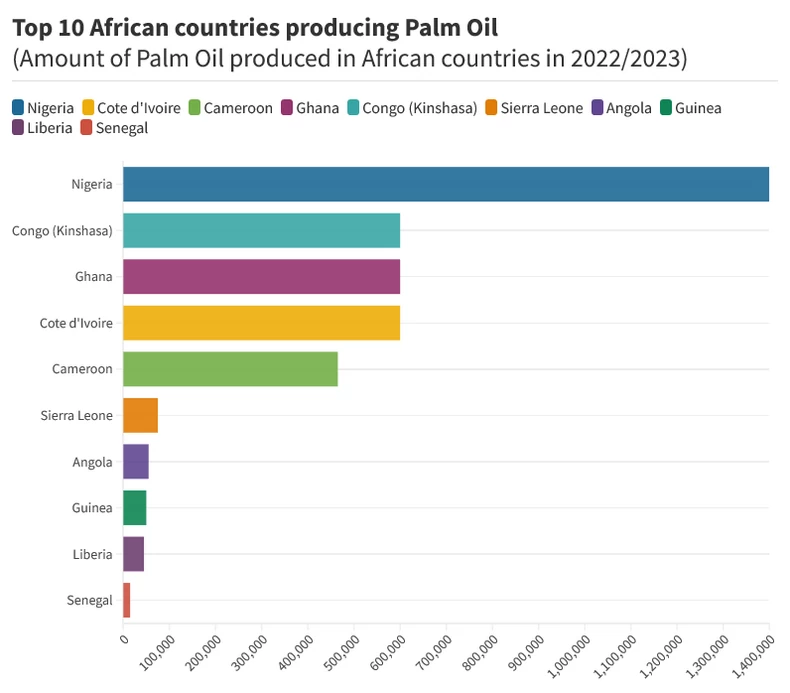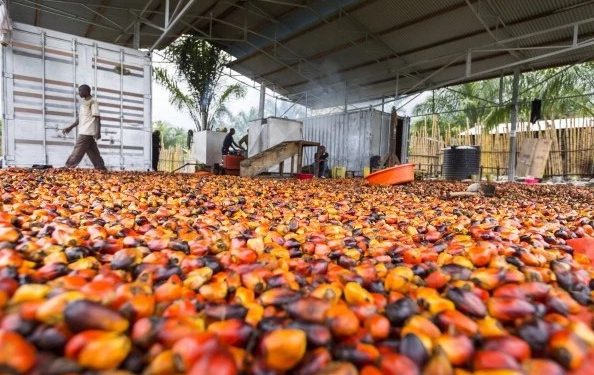Palm oil is a versatile and cost-effective ingredient that is widely used in various products we use daily due to its high melting point. However, its production has caused significant environmental damage and human rights violations, despite providing income to rural communities in poorer nations.
Indonesia, Malaysia, and Thailand are the largest producers of palm oil globally, while several African and South American countries also produce significant amounts. The demand for palm oil has risen sharply in recent decades, and it is now an essential ingredient in many products, including food, cosmetics, and biofuels.
Despite the environmental and social concerns associated with palm oil production, it remains an important industry that provides jobs and contributes to economic growth in many countries, including several African nations.

Nigeria is the top palm oil producer in Africa and the fifth-largest globally, with an output of 1.4 million metric tons. Cote d’Ivoire produced 600,000 metric tons, while Cameroon produced 465,000 metric tons, making them significant players in the global palm oil industry.
Although Ghana’s palm oil industry is still relatively small, the government has identified it as a priority sector for development, and investments are being made to expand it. Congo (Kinshasa) produced 300,000 metric tons but has faced challenges due to political instability and a lack of infrastructure.
Sierra Leone, Angola, Guinea, Liberia, and Senegal are other African nations producing palm oil. While their output varies, each country has identified the industry as a means to create jobs, increase exports, and diversify their economies.








